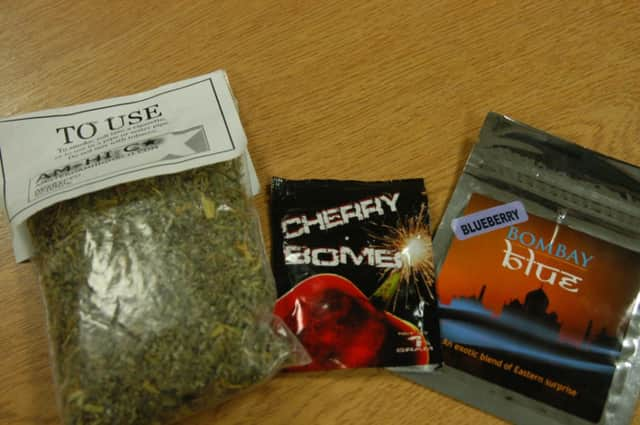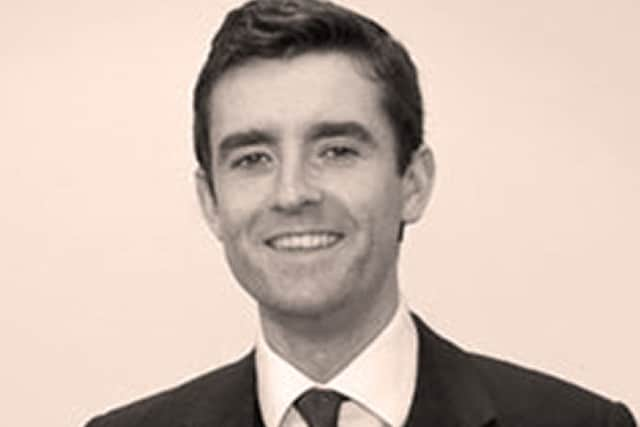Massive increase in ‘legal high’ incidents in parts of Yorkshire


West Yorkshire Police recorded 324 such incidents this year, compared to 13 in 2012, while South Yorkshire Police saw the number of incidents rise from 18 to 465 in the same period.
The figures were revealed in Freedom of Information Act responses by the forces to the Centre for Social Justice (CSJ) think-tank, who say police should be given powers to close shops that persist in selling legal highs.
Advertisement
Hide AdAdvertisement
Hide Ad‘Legal highs’ contain one or more chemical substances which produce similar effects to illegal drugs like cocaine, cannabis and ecstasy but are not yet controlled under the Misuse of Drugs Act 1971.


An increasing number are being researched to see what their dangers are and whether they should be made illegal, with the substances found in many so-called legal highs having already been outlawed.
According to CSJ, the number of people in treatment after taking ‘legal highs’ soared by 216 per cent in England in the last five years and the number of deaths associated with them has also risen sharply.
Of the 16 police forces that responded to the think-tank’s request, all have seen big increases in the number of incidents where the term ‘legal high’ was logged on their records.
Advertisement
Hide AdAdvertisement
Hide AdIn West Yorkshire no such incidents were reported in 2010, but there were four in 2011, 13 in 2012, 88 in 2013 and 324 in 2014.
But Lincolnshire police have seen more than twice as many, with 820 incidents in 2014, compared to 57 two years earlier.
Senior CSJ researcher Rupert Oldham-Reid said: “It is too easy for people to walk into high street shops and buy these drugs – many of them as dangerous as Class A substances.
“If we want to start responding to the problems caused by ‘legal highs’ we need to clamp down on those making a living out of selling them.”
Advertisement
Hide AdAdvertisement
Hide AdThe CSJ has called for police and courts to be given new powers to close ‘head shops’, of which there are around 250 in the UK, that sell many ‘legal high’ substances.
It wants the Government to implement legislation similar to a scheme run in Ireland, where authorities slashed the number of ‘head shops’ from more than 100 to less than 10.
In recent months West Yorkshire Police has stepped up its efforts to tackle what it describes as “the largely unregulated market in new psychoactive substances” as part of its Operation Nightshot.
In October Pervez Abbas, of Barker’s Newsagents on Sunbridge Road, Bradford, was made subject to a legally binding High Court Order stopping him from selling legal highs from his shop or storing them on the premises.
Advertisement
Hide AdAdvertisement
Hide AdDuring the summer search warrants were issued as part of a targeted operation in Wakefield, Bradford and Leeds to coincide with the reclassification of N-methylated 6-APB, commonly known as Benzofury, as an illegal Class B drug.
And last year the owner of a Leeds market stall was convicted over the sale of ‘legal highs’ in the first case of its kind in the country.
Hamayun Parwani, of Old Farm Cross, Leeds, was found guilty of selling an intoxicating substance to a person under the age of 18 years under Section 1 of the Intoxicating Substances (Supply) Act 1985 following a trial at Leeds Magistrates’ Court.
In December, four teenagers were admitted to hospital in South Yorkshire after taking legal highs, and in June, a Sheffield student was hospitalised after taking a Class A drug known as “N-Bomb” that was legally available until a week earlier.
Advertisement
Hide AdAdvertisement
Hide AdThe drug is thought to have effects similar to, but much stronger than, the more-commonly known LSD.
A recent report by the Home Office called for a blanket ban on supply of legal highs. Currently, when a legal high is outlawed, illegal-drug chemists are getting around the law by tweaking the chemical compound and creating a new substance.